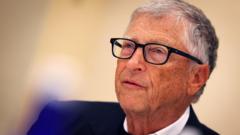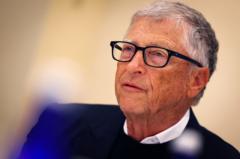Elon Musk's unexpected dissociation from Nigel Farage, leader of Reform UK, marks a significant shift in their previously cordial relationship. Musk's call for new leadership within the party points to deeper ideological differences and the complexities of political support.
Musk’s Dissonance with Farage: A Shifting Political Landscape

Musk’s Dissonance with Farage: A Shifting Political Landscape
Elon Musk's recent criticism of Nigel Farage highlights evolving political alliances and core principles within populist movements.
Elon Musk, the billionaire entrepreneur associated with Donald Trump, has recently altered his previously supportive stance towards British politician Nigel Farage, leading to speculation about the volatility of political alliances. Farage, known for his anti-immigrant sentiments and leadership of Reform UK, had garnered Musk’s endorsements until the billionaire stated publicly on Sunday that the party required new leadership, asserting, “Farage doesn’t have what it takes.”
This surprising critique seems to stem from Farage's refusal to endorse Musk's call for the release of Tommy Robinson, a controversial figure with a criminal background and a history of inflammatory remarks against Islam. Farage's distancing from Robinson, whose real name is Stephen Yaxley-Lennon, indicates his commitment to maintaining his political principles, as he publicly expressed disagreement with Musk's viewpoint.
Farage’s response was notably upbeat, suggesting surprise at Musk's critique while emphasizing his unwavering stance against endorsing figures whom he believes don't align with the values of Reform UK. This incident reflects not only an interesting dynamic between Musk and Farage but also raises questions about the implications of public figures leveraging platforms to influence political discourse in Europe similar to their actions in the United States.
Musk's commentary on the political situation in Britain has generated a surge of reactions, highlighting an environment rife with misinformation and sharply-divided opinions. The rupture between him and Farage exemplifies the challenges and intricacies that emerge when political endorsements evolve under external pressures and diverging principles, setting the stage for an unpredictable future in party politics across Europe.




















